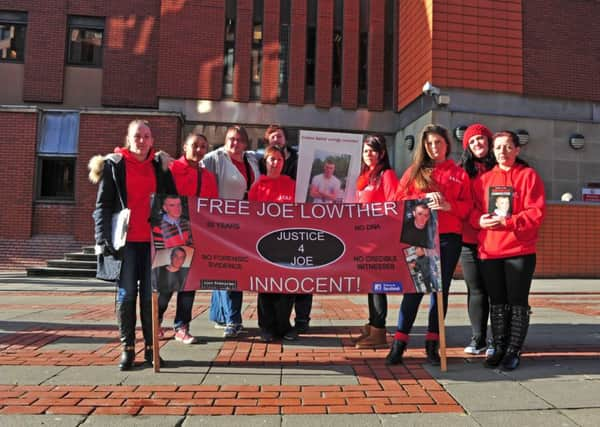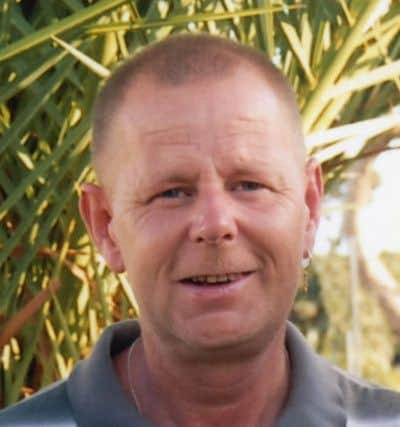'˜Joint enterprise' ruling could give hope to men convicted over Bradford acid murder


A panel of Supreme Court justices concluded today that the law on joint enterprise - which can result in people being convicted of assault or murder even if they did not strike the blow - had been wrongly interpreted by criminal trial judges over the past 30 years.
Among the cases that could be affected is that of four Bradford men jailed for a total of 126 years in 2014 under the joint enterprise principle for the acid attack murder of father-of-three Barry Selby.
Advertisement
Hide AdAdvertisement
Hide AdThe sister of one of the men, all of whom denied the revenge killing, said she was “ecstatic” at the ruling and that her brother would never have been found guilty without the controversial legal doctrine.


The Supreme Court justices said prosecutors, judges and jurors had to take a different approach when dealing with defendants accused of being involved in joint enterprise crimes.
They said it was not right that someone should be guilty merely because they foresaw that a co-accused might commit a crime. The panel said jurors should view “foresight” only as evidence to be taken into account, not as proof.
A group campaigning for a change in the law on joint enterprise said the ruling was a “major turning point” and that hundreds of people could be affected.
Advertisement
Hide AdAdvertisement
Hide AdFive Supreme Court justices analysed the issue at a hearing in London in October when considering an appeal by a man who was convicted of murder after egging on a friend to stab a former policeman.


Ameen Jogee and Mohammed Hirsi, both in their 20s, were given life sentences at Nottingham Crown Court in March 2012 after being convicted of Paul Fyfe’s murder.
Jurors heard that Hirsi stabbed Mr Fyfe at a house in Leicester in June 2011 while being egged on by Jogee.
The Supreme Court has now allowed Jogee’s appeal against conviction but he will stay in prison while prosecutors decide whether he should be retried.
Advertisement
Hide AdAdvertisement
Hide AdRebecca Wright, from Bradford, whose brother Andrew Feather was convicted of the murder of Barry Selby, said the ruling would be a “massive” boost for his chances when an appeal is heard later this year.
The 25-year-old was convicted along with co-accused Robert Woodhead, Joseph Lowther and Lee Calvert for what a judge described as the “vicious” and “cowardly” murder of 50-year-old Mr Selby at his home in East Bowling.
The four men’s appeal was put on hold pending the result of today’s ruling. A date has yet to be set could take place as early as March.
Mr Feather was convicted as the getaway driver for the other three men and was not in the house at the time of the attack.
Advertisement
Hide AdAdvertisement
Hide AdMr Selby was shot in the leg and had sulphuric acid poured over him after intruders smashed their way into his home. He suffered 50 per cent acid burns and died in hospital four days later.
Miss Wright, 29, said her brother’s lawyers had new evidence about his case but that even without that, the Supreme Court ruling would allow them to appeal.
She said: “They did him on the fact that he would have foreseen that an attack would take place. Andrew also has evidence that he has put in and we are waiting for an appeal date.
“The prosecution used joint enterprise to convict him, the evidence was so weak that the only way they could convict him was to stick this doctrine on him.
Advertisement
Hide AdAdvertisement
Hide Ad“It is massive for Andrew, without that he would never have been found guilty at all.
“I am ecstatic. Twelve months ago I was thinking ‘is it going to work’ and each time I looked in the papers more people were going down for joint enterprise. It was like a massive net catching people. Now with this ruling I can finally see the light.
“I can never get my head round why you can be found guilty of murder if it is proved you weren’t there.”
Tricia Woodhead, the sister of Robert Woodhead, said she was “absolutely thrilled” by the ruling. She said: “It is not just about Robert, it is about the other prisoners who have been locked up unjustly.”
Advertisement
Hide AdAdvertisement
Hide AdCampaign group Jengba (Joint Enterprise Not Guilty by Association), which has been campaigning for five years against the joint enterprise doctrine, hailed the Supreme Court ruling.
“This is a major turning point in British justice,” said Jengba campaigner Deborah Madden. “The joint enterprise rule has been used to get mass convictions without evidence. It has caused devastation for families.”
She added: “We know of 650 people who we think will be affected by the ruling - and we don’t know everyone.”
Lord Neuberger, the President of the Supreme Court, had headed the panel which analysed the joint enterprise issue.
Advertisement
Hide AdAdvertisement
Hide AdHe outlined the thinking of justices in a summary of the ruling and explained that the law had taken a “new turn” in the mid-1980s.
Senior judges had decided in 1984 that a “secondary party” would be guilty of murder if he or she “foresaw” the possibility that the “principal” might act with intent to cause death or serious harm, said Lord Neuberger.
He said trial judges could not be criticised for following that lead when giving directions to jurors.
But he said Supreme Court justices had decided that the law had taken a “wrong” turn in 1984.
Advertisement
Hide AdAdvertisement
Hide AdLord Neuberger said treating “foresight” alone as enough to convict was wrong.
He said the correct approach was for “foresight” to be treated as evidence jurors could consider.
Justices wanted submissions from lawyers on how their ruling affected Jogee’s case, he said.
They would consider whether Jogee should be re-tried on a murder charge or re-sentenced for manslaughter.